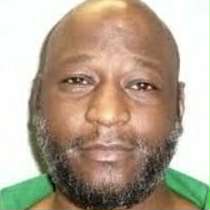
1978 - 2024
Freddie Eugene Owens
Summary
Name:
Years Active:
1997 - 1999Birth:
March 18, 1978Status:
ExecutedClass:
MurdererVictims:
2Method:
Shooting / Strangulation / SuffocationDeath:
September 20, 2024Nationality:
USA
1978 - 2024
Freddie Eugene Owens
Summary: Murderer
Name:
Freddie Eugene OwensStatus:
ExecutedVictims:
2Method:
Shooting / Strangulation / SuffocationNationality:
USABirth:
March 18, 1978Death:
September 20, 2024Years Active:
1997 - 1999Date Convicted:
February 15, 1999bio
Freddie Eugene Owens was born on March 18, 1978, in South Carolina, into a turbulent and violent environment that would deeply shape his psychological development. His mother was only 18 at the time of his birth and, unable to care for him properly, placed him into foster care at age five. Owens experienced abuse and neglect within the foster system before being returned to his biological mother, who later remarried. His stepfather was physically abusive, and Owens grew up in a household marred by domestic violence. One of the defining traumas of his childhood occurred when, at just seven years old, Owens witnessed his grandmother shoot a man — a violent incident that would become part of his early exposure to brutality.
Owens’s biological father was abusive toward his mother and siblings, further contributing to a chaotic upbringing that fostered emotional instability and distrust. Diagnosed early with antisocial personality disorder, Owens exhibited behavioral problems that were exacerbated by the violence and neglect he endured during his formative years. Despite this troubled background, his early encounters with the legal system were minor compared to what was to come.
By his late teens, Owens’s life had veered sharply into criminality. He was involved with a group of peers who frequently engaged in robberies and petty crimes, eventually escalating to armed offenses. Those close to Owens described him as deeply angry and impulsive, with a tendency toward violence when provoked. His chaotic family history and untreated mental health issues set the stage for the horrific events that would occur in 1997 and beyond.
murder story
On November 1, 1997, Freddie Eugene Owens and his friend Steven Andra Golden entered a convenience store in Greenville, South Carolina, with a gun. They demanded money and held the female clerk, Irene Grainger Graves, at gunpoint. Golden testified that Owens shot Graves in the head when she could not open the safe. They stole $37.29 from the cash register and fled the scene. Authorities arrested Owens on November 11, 1997, and he was charged with murder and robbery alongside Golden, who later pleaded guilty to voluntary manslaughter.
Owens went to trial in February 1999. Despite denying he killed Graves, evidence pointed to him as the shooter. A jury found him guilty of murder and armed robbery. He received the death penalty two days later.
While awaiting his execution, Owens killed fellow inmate Christopher Bryan Lee in prison on February 16, 1999, less than a day after being convicted. Owens admitted to attacking Lee after Lee taunted him about his conviction. He confessed to strangling Lee and using a ballpoint pen as a weapon, leading to Lee's death.
Owens appealed his death sentence, which was overturned due to procedural errors, allowing for re-sentencing. In 2003, he was again sentenced to death. He continued to face appeals, but the courts upheld his sentence multiple times over the years.
By 2024, he remained on death row and converted to Islam, adopting a new name. His execution was set for September 20, 2024, making him the first person executed in South Carolina since 2011. Despite claims of innocence and new affidavits from accomplices questioning his guilt, the South Carolina Supreme Court denied the appeals.
On the night of his execution, Owens declined to make a final statement. He was executed by lethal injection, becoming a pivotal case in the state's discussions on capital punishment and the legal system's challenges related to death penalty cases.